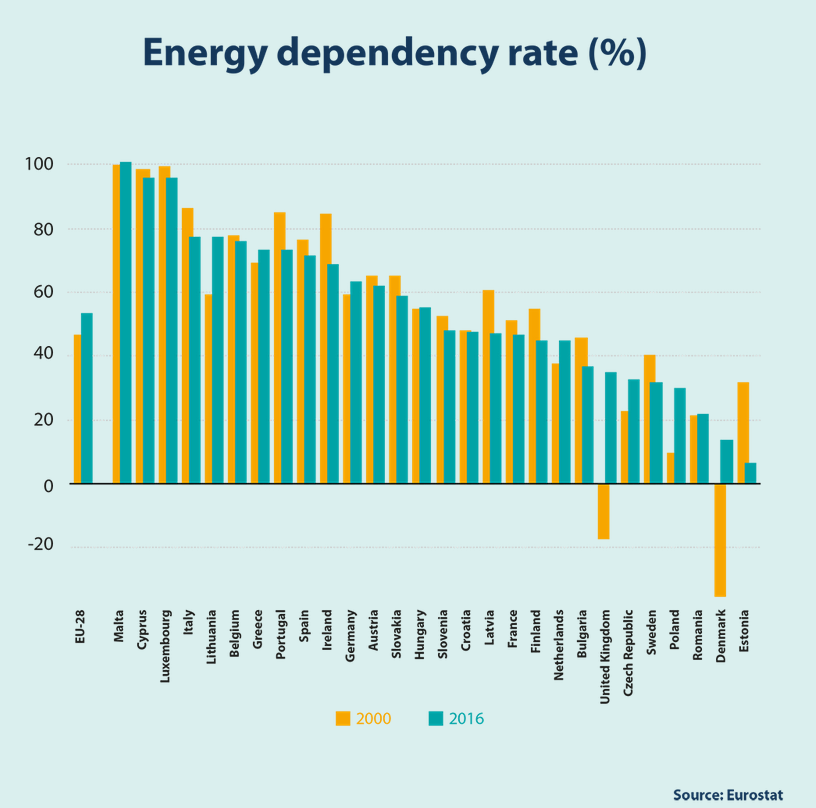
In 2016, Estonia (6.8%) was the Member State least dependent on imported energy, ahead of Denmark (13.9%), Romania (22.3%), Poland (30.3%), Sweden (31.9%) and the Czech Republic (32.8%). At the opposite end of the scale, the highest energy dependence rates were registered in Malta (slightly over 100% because of the build-up of stock), Cyprus (96.2%) and Luxembourg (96.1%), followed by Italy (77.5%), Lithuania (77.4%) and Belgium (76.0%).
In 2016, the European Union (EU) needed to import slightly over half (53.6%) of the energy it consumed. Since 2004, energy dependency in the EU has been above 50% with a highest rate recorded in 2008 (54.5%), according to Eurostat data.

In the Czech Republic, energy dependency rate has increased since 2000.
Also, the report Renewable Energy Policies in a Time of Transition prepared jointly by the International Renewable Energy Agency (IRENA), the International Energy Agency (IEA) and the Renewable Energy Policy Network for the 21st Century (REN21), identifies key barriers and highlights policy options to boost renewable energy deployment.
After reviewing current policies and targets worldwide, it examines sector-specific policies for heating and cooling, transport and power, as well as measures for integrating variable renewables. An updated policy classification and terminology list can serve as a global reference for renewable energy policy instruments.
Among the key findings are: